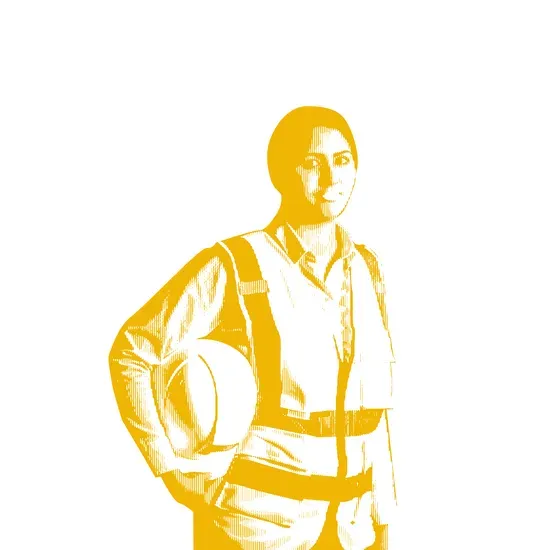The Pulitzer Center is now accepting applications for its initiative focused on climate change and its effects on workers and work. As the world heats up, what jobs and employment sectors, what factory practices, what sorts of manufacturing–from computer chips to batteries to food production to fast-fashion–are threatened or must change?
GRANT OVERVIEW
The Pulitzer Center, a nonprofit organization that supports independent global journalism, is now accepting applications for a new reporting initiative focused on climate change and its effects on workers and work.
This ambitious initiative, Our Work/Environment, seeks to explore the global climate risks playing out in fields and on factory floors and being discussed in company boardrooms. As the world heats up, what jobs and employment sectors, what factory practices, what sorts of manufacturing–from computer chips to batteries to food production to fast-fashion–are threatened or must change?
What factors will affect work? Heat, yes. Competition for water, for sure. We want you to reveal the real-world problems of working as temperatures rise, and then tell us much more. Stories that document the impact on labor rights and the livelihoods of some of the world’s most vulnerable workers—including women who are often heads of household—as well as those that document companies that are working on solutions, and which are aiming for sustainability at scale, are of interest. We encourage stories that help inform the public about the interconnected nature of business, climate, and consumer choices. We welcome stories that explain policy in real terms and plumb legal suits, when useful.
Transparency and governance is a cross-cutting theme for all of our focus areas. We seek to support deep dive reporting projects that follow the money across borders; shed light on opaque and harmful supply chains; and investigate the systems, organizations, and people that enable corruption.
We encourage freelance and staff journalists with ambitious enterprise and strong in-depth reporting ideas to apply for Pulitzer Center support to cover the intersection of labor and climate in their communities. We are particularly interested in reporting from regions in Southeast Asia, Europe, Africa, and South America. All types of formats are welcome: print, digital, broadcast TV, radio, and film projects, as well as data and computer-assisted journalism. We encourage vivid, innovative storytelling that can be shared across platforms and in multiple languages. The amount awarded depends on the scope and complexity of the project, the media formats involved, and the distribution plan.
This grant opportunity is now open, and applications will be reviewed on a first-come, rolling basis. We will prioritize proposals that can be completed, including publication, in one-four months.
The Our Work/Environment initiative is coordinated by climate/labor editor Christine Spolar.
FREQUENTLY ASKED QUESTIONS
Who is eligible to apply?
This opportunity is open to U.S. residents and journalists around the world. We are open to proposals from freelance data journalists, staff journalists, or groups of newsrooms working in collaboration with a data project idea. We want to make sure that people from many backgrounds and perspectives are empowered to produce data journalism. We strongly encourage proposals from journalists and newsrooms who represent a broad array of social, racial, ethnic, underrepresented groups, and economic backgrounds.
When will you be notifying applicants on whether they've been selected?
We begin reviewing applications as soon as they are received and typically notify applicants within a month if they're being considered for support. If there is some urgency to the field reporting, the applicant should state the reason in the application.
What is the budget range for the data journalism proposals?
We do not have budget range for these data journalism awards. We will consider projects of any scope and size and and we are open to supporting multiple projects each year. Most awards for our past data journalism project support has been between $10,000-20,000, but may be more or less depending on circumstances.
Do you pay stipends or salaries for freelance journalists?
We expect news organizations to pay freelance journalists for their work, though in exceptional cases, we may consider stipends to cover a reporter's time, if provided in the budget with an explanation. It is OK to include costs of contractors, such as data researchers or data visualization/story designers in your proposal and budget. Please do not include stipends for journalists/team members who are in the employ of newsrooms or are being paid by a publisher.
What are examples of editorial products or project expenses that the Pulitzer Center grants DON’T cover?
- Books (we can support a story that might become part of a book, as long as the story is published independently in a media outlet)
- Feature-length films (we do support short documentaries with ambitious distribution plans)
- Staff salaries
- Equipment purchases (equipment rentals are considered on a case-by-case basis)
- An outlet’s general expenses (for example rent, utilities, insurance)
- Seed money for start-ups
- Routine breaking news and coverage
- Advocacy/marketing campaigns
- Data projects aimed solely at academic research. Data should be developed to enhance/support journalism.
More questions?
Email us at [email protected]. We check emails daily and look forward to hearing from you.
